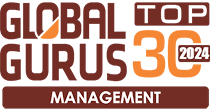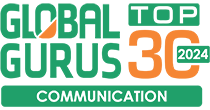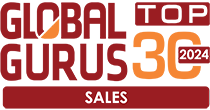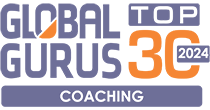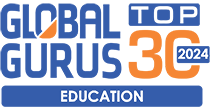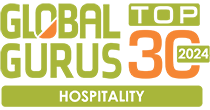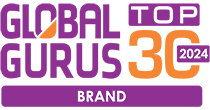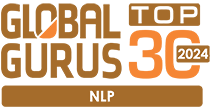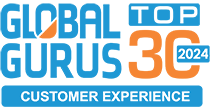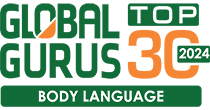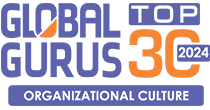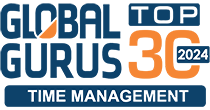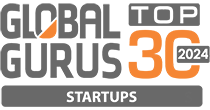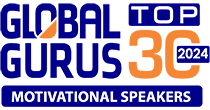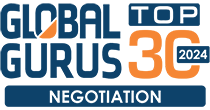Can Nurses Become Entrepreneurs: Which Are the Key Considerations?
March 30, 2020
Technically, anyone can become an entrepreneur with proper training, education, and mentorship, but are there any particular reasons as to why nurses might be more suited for taking on the role of an entrepreneur? The answer is variable, but yes, nurses with the right education and training can start a business of their own and grow far beyond the career scopes of a general nurse.
The Variability Factors
As mentioned, a nurse’s potential for becoming an entrepreneur is variable, and that variability is on account of multiple factors as mentioned next.
- Natural inclination: Factors such as their own background, interest and prior experience in running or managing a business, as well as family history in business
- Education: Advanced nursing education and training, business degrees
- Experience: A nurse planning to start a business of his/her own needs significant experience in the field, which is, of course, the field of healthcare
- Decisions: Depending on the decisions made or about to be made by a nursing professional, the viability of them launching and running a successful business will vary
- State laws: Depending on the state in question, the option to launch an independent healthcare practice may or may not exist
- Opportunities: Not everyone gets the same opportunities to work with, in whatever forms they may come
- Contacts: Building interpersonal relationships is one of the key skills that every entrepreneur must possess, which will be essential for an entrepreneurial nurse as well
- Reputation: It’s a combination of their education, training, experience, work performance, and professional history; it brings credibility to them and their business plans
There might be other factors involved of course, but these will remain the most important variables which will decide whether a nurse can indeed become an entrepreneur, or if they should stick to their jobs for the time being. A point to be remembered here is that even if a nurse lacks experience, education, training and the contacts necessary to launch their own business right now, it’s only a temporary setback. All that it means is that they need to spend more time in healthcare and work on what is lacking. Down the line, almost anyone can change the variables in their own favor, as long as the effort is persistent.
Natural Inclinations
Natural inclination refers to the nurse’s innate abilities and tendencies that cultivate the very idea of starting a business of his/her own, which could often be a result of family influence if the nurse comes from a business background. That is, however, not a necessity at all, as a large number of entrepreneurs, irrespective of their field of expertise, didn’t come from a strong business background.
A natural inclination towards entrepreneurship can be identified early on by taking note of the following signs:
- A tendency to stay self-motivated and motivate others around them
- True dedication towards work – perfectionism
- A competitive nature from an early childhood
- Being a constant winner is not a criterion, but the unwavering will to win, aka perseverance, is
- The ability to take small risks and learn from failures
- The ability to take calculated big risks and minimize the chances of failure in advance
- An insatiable tendency to constantly learn, improve and innovate
- Adaptability and open-mindedness: these are essential traits for entrepreneurs in general in today’s constantly changing world
- Leadership qualities: The nurses may already be holding a position of power where they work, whether formal or informal
Education and Training
For a nursing professional, nothing is more important than the right education and training, whether it is for attaining entrepreneurial goals, or for rapid career development. The idea here is to align your future goals with your advanced nursing education and training programs. For example, you might want to consider checking out these Nurse Practitioner programs in Florida from Carson-Newman, which are specifically designed to educate and train nurses for becoming independent healthcare professionals, who could then become capable of running their own practices, without physician supervision. Do pay heed to the state laws that allow/disallow NPs and FNPS to have Full Practice Authority (FPA) in advance though.
This essentially makes the MSN-FNP an advanced nursing degree that facilitates future entrepreneurship. The best part is that even if the business idea doesn’t pan out, or someone wants to stay in direct service of the noble profession, the career opportunities are still huge here. The following should provide an idea regarding the same:
- An MSN-FNP provides a nurse with the degree and training necessary to work as a nursing leader in any healthcare facility
- Even without assuming leadership, FNPs can work in any family health and children’s health advocacy center, community health center, pediatrics, health & wellness companies, etc.
- The average salary of family nurse practitioners was estimated to be $93,767/year by PayScale, vs. an average of $63,876/year for a general registered nurse
Once you become an NP or FNP, the option for future entrepreneurship is always going to be kept alive, and it’s likely to get stronger with every passing year. As an FNP, you will soon have the right contacts, reputation, experience and resources necessary for becoming an independent caregiver, even if you are not ready to take that route right now in your career.
Risks
The decisions we take or make as professionals are always a key factor, but no one is usually aware or at least 100% sure about the outcomes while taking a risky decision. Therefore it’s not really possible for anyone to see the future and make perfect decisions all the time. Given the fact that nurses often have to take critical decisions to save lives more often than one may give them credit for, taking calculated risks is something that’s part of the job description for the most part.
Calculated being the keyword, nurses can also use their trained ability to handle risky business situations, which in turn would help them take the right risks at the right time. A good example would be that of knowing when to take that entrepreneurial leap. A few pointers should nonetheless help in minimizing this particular risk:
- Wait until you have completed at least your MSN
- There should be quite a few significant years of experience to back you up as a credible healthcare expert
- The right contacts should be there for you to help pursue the opportunity when it pops up
- A financial backup should also be there for emergencies
In all fairness though, trying to start a practice of your own isn’t an all-out risk for nurse practitioners, given that there is always a scarcity of highly educated nurses in the US; which is also a problem that’s going to keep growing bigger by the year until 2030. Nevertheless, the knowledge that if it doesn’t work out, you will still most likely be able to land a $90,000 per year job anyway, which can be quite reassuring!
Decisions
It might feel confusing to differentiate between risks and decisions, as they are often synonymous with each other, especially in the healthcare business. However, a decision is a much broader category, while risks are just a part of it.
In respect to the topic we are discussing here, an important example of taking the right decision would be making the choice between online and offline, for your chosen advanced practice degree or specialization in nursing.
If you choose to take the online route, the following advantages will be on your side:
- You will gain experience, training, and education simultaneously
- Time management will be easier due to the inherent accommodating nature of professional online nursing programs
- No commuting expenses + reduced fees + zero boarding costs = huge financial advantage
- Nurses with families will find online education to be a natural choice for career growth
- The money saved + the experience & education gained + the money earned = a solid financial base to try your entrepreneurial goals with a safety net
- You will already be building contacts and making headway for their business plans, on account of the many, many hours which you will save in commute
Can Nurses Launch Successful Businesses in Other Areas?
There is no reason why they can’t do so in healthcare-related industries, even if it isn’t directly related to primary caregiving. Experienced, highly educated APRNs have enough knowledge to venture into associated fields of healthcare as well. However, there is no doubt that in accordance with the general rule of entrepreneurship, the highest chances of launching any successful startup will always lie in the field where the entrepreneur has the most experience in.
The more familiar the field, the easier it will be for them to avoid wasting time on a learning curve. In business, time is of the essence, while knowledge and experience are of paramount importance. This means that trying out your luck in an industry that you are not familiar with is an uncalculated and ill-advised risk. Even Warren Buffet may not have been much of an entrepreneur if he tried his hands in the tech industry instead of investment banking! Sticking to healthcare and/or closely related fields that have relevance to your education, training and experience as a nurse, would, therefore, make the most sense.








